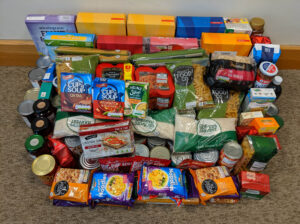What is Food Waste?
By: Yannis Economopoulos
Food waste occurs when food is uneaten or thrown away.
Mike Chopowick, Ontario's waste management director says, "we're going to run out of room. The No.1 issue is going to be capacity. Ontario produces a lot of waste."
According to the Government of Ontario, $31 billion worth of food is wasted annually in Canada. Ontario alone generates nearly 3.6 million tonnes of food and organic waste. Food that is put in the trash can rather than the green bin has a big impact on the environment. When the food starts decomposing, it will release methane, which is a gas that is approximately 25 times more potent than carbon dioxide over a 100-year span.
What Ontarians can do to Help Reduce Food Waste
By: Damian Omorogbe
Keep track of what you have in your refrigerator and other places like cupboards to avoid buying food you already have. 
Make a list of food items you plan on buying before you go shopping to avoid buying items you might not eat. 
Donate extra food to charity to help feed the hungry through food banks and shelters.
Canadian Initiatives Trying to Prevent Food Waste
Waste-Free Lunch: The Waste-Free Lunch challenge Ontario launched was created to inspire students and their school communities in order to have them use the 3R's. Reduce, Reuse, and Recycle. This was made as a resource for classroom teachers to spread awareness on the issue of food waste.
Osco!: A green restaurant call "Osco!" located in Montreal, had the idea to create a chef's garden on their roof which grew veggies and herbs. Osco! also started a project to eliminate food waste and fertilize their rooftop garden.
Food Banks Canada: is in association with the food industry nationally. They have developed relationships with local farmers, retailers, and restaurants to receive good excess food that will otherwise go to waste.


Be the first to comment